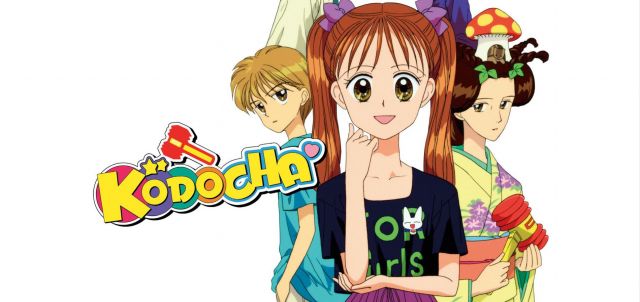Highlights
- Anime series Kodocha had a difficult journey to America, with only half of an English dub initially released due to licensing and rights issues.
- The release of Kodocha in North America by FUNimation Entertainment faced controversy, as the opening theme song and certain voice acting had to be removed due to expensive licensing.
- Despite initial success, sales slowed and the series was eventually canceled, but Discotek Media acquired the series for an American release with the second season finally available, although without a dub.
It is a miracle that anime is as big as it is in America. There were many years when classic works of art were never seen in America because they simply weren’t profitable enough to be brought over. Once anime became mainstream, a good deal of classic anime that had never been seen before started to be released.
That being said, one of them came with only half of an English dub. Its journey to America was a checkered, strange journey whose story is little known.
RELATED: Classic Manga That Paved The Way For Modern Romance Anime
What is Kodocha?

Kodocha – also known as Kodomo no Omocha (which translates to Child’s Toy) – is a popular Japanese manga and anime series created by Miho Obana. The series blends elements of comedy, drama, romance, and slice-of-life, primarily targeting a shoujo audience. Kodocha was first serialized in the manga magazine Ribon from 1994 to 1998 and was later adapted into an anime series that ran for over 100 episodes.
The story of Kodocha revolves around the life of Sana Kurata, a talented child actress and the series’ protagonist. Sana is known for her bubbly and energetic personality, but her life takes a dramatic turn when a new student, Akito Hayama, joins her class. Akito is a troubled boy with a difficult past and a penchant for causing trouble. As the series unfolds, it explores the ups and downs of Sana and Akito’s relationship, along with the challenges and joys of growing up. The Kodocha anime adaptation aired from 1996 to 1998 and covered a portion of the manga’s story. It was well-received for its engaging characters, humor, and emotional depth. Despite this, the journey to adapt the series for an American audience was anything but easy or carefree.
The Legal Problems Preventing it from Coming to America

Considering how popular the franchise was, it was inevitable that the series would attract American companies to acquire the series for the fledging anime DVD market. There was even more interest in the title when Tokyopop brought over the manga series under the title Kodocha: Sana’s Stage to critical acclaim and great sales. When the manga became a hit fans started questioning when the anime would follow. The problem was that translating a manga is very different (and much cheaper) than dubbing a 100 plus episode anime series.
Ultimately, the anime adaptation of Kodocha was released in North America by FUNimation Entertainment. FUNimation obtained the rights to the series and distributed it in the United States. Under the title Kodocha: Child’s Play, they released the anime with English subtitles and dubbing, making it available to English-speaking audiences for the first time. The English-language version of the anime allowed fans in North America to enjoy the series and its unique blend of comedy and drama. This should have been a good thing.
However, the release was not without controversy. Due to rights issues, the opening theme song could not be released in America because the group who sang it – TOKIO – ended up going on to become a pretty big deal in Japan, which meant licensing the music would be prohibiably expensive. For that matter, they contributed other musical cues and the lead singer even voiced an animated version of himself in the show. Since both the songs and the acting performances could not be maintained without paying huge royalties, voice acting bits had to be removed from the Japanese audio. If you watched these scenes in Japanese, the audio is muted and the subtitles altered so that the musicians’ names aren’t seen. While the dub is able to, well, dub AROUND these issues, fans of the Japanese version were rightly upset at the altering of the show (which persisted for more than a handful of episodes)!
How Everything Imploded

The scarring of the audio and certain visuals on the DVD left a sour taste in fans mouth, who wanted the complete Kodocha experience. After the initial success of the DVDs, word-of-mouth spread on the compromises that were made to the show. Soon after, sales slowed, and the title was eventually canceled. By that point, Funimation had dubbed roughly 52 episodes of the series, but sales and the poor reception of the DVDs resulted in the second season not making its way over to America. Or, at least, not for many years.
Discotek Media announced in 2021 that they had acquired the series for an American release once again (season one was released in 2021 while season two was released in 2023). These BluRay sets would still have the same audio and visuals changes as the original release. However, fans would get something that Funimation didn’t provide: the second season was finally released in America. Sadly, because the series sold poorly the first time, no dub was created, and thus no dub would be provided on these new sets. Still, at least fans can watch the entirety of this classic anime legally for the first time ever, so there’s always that.











Leave a Reply